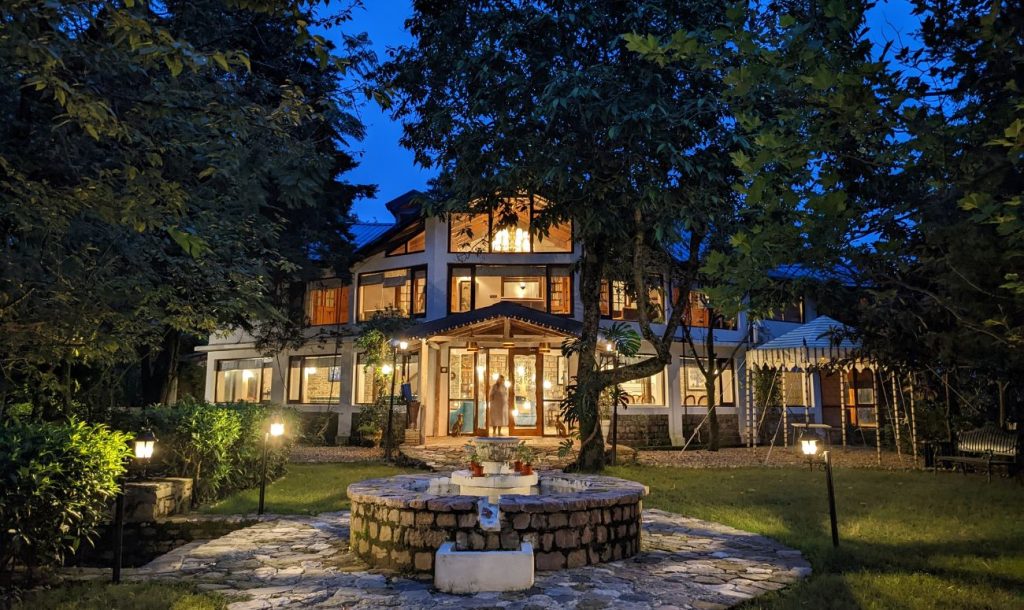Life at Gethia has been treating Shrey Gupta well. Being only in his early twenties and having founded a luxury boutique property, one can ponder Gupta has found a treasure trove of tranquillity and made it accessible to all with Blue Book at Gethia.
India’s awe-inspiring geography and meditative quality are known around the world, but what most people don’t know is there are some pockets of serenity offered by hidden destinations. There’s an unmistakably reviving energy found in these places that nourish the mind, body, and soul; Blue Book at Gethia is one of them. “Being an avid traveller and an admirer of boutique and experiential hotels and being someone who is very mindful of the community and the environment, the mission behind Blue Book Hotels was clear in my head since the beginning, “Inclusive growth, exclusive experience.” I wanted to create a brand of sustainable boutique hotels that gives its guests a memorable experience that they will cherish for a long time,” says Shrey Gupta, founder of Blue Book at Gethia.
So, if you’re looking for an all-in, life-changing journey that cannot be justified as a mere vacation, then this recently restored, heritage property nestled in the cosy hills of Gethia should be at the top of your mind. ThinkRight.me spoke with Shrey Gupta to understand where this adventure would take you and a paint a picture of a one-of-a-kind experience.
ThinkRight.me in conversation with Shrey Gupta, founder, Blue Book at Gethia.
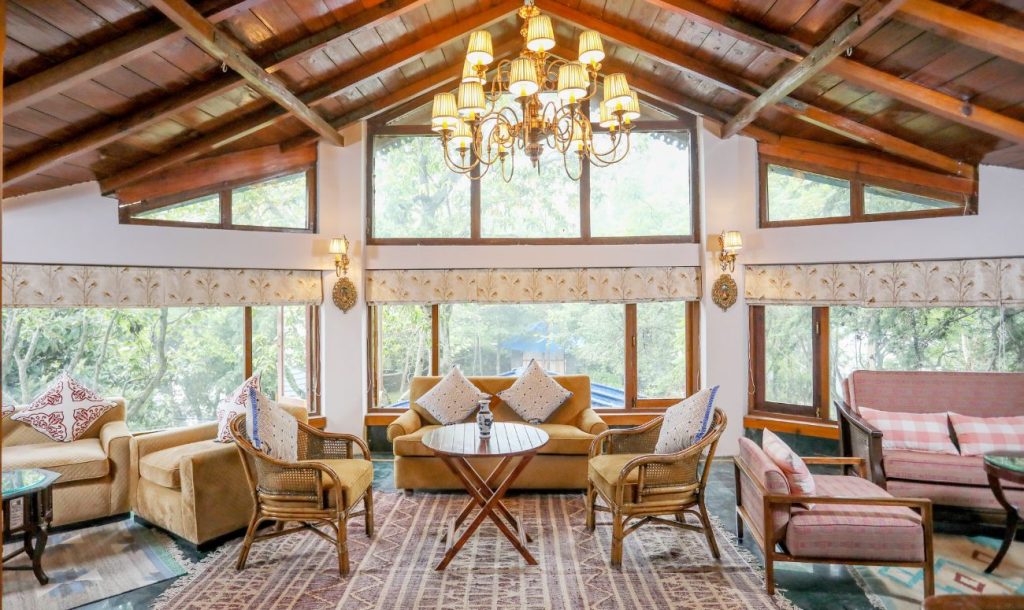
ThinkRight.me (TRM): Tell us, how did it all start? When did you decide to take such a big leap and do something that many take years to find the courage for?
Shrey Gupta (SG): Since I was 8 years old, I always used to be very fascinated by my uncle who had left city life in Delhi and made his home in Chail, Himachal Pradesh. I was enamoured by the life he lived and still does, living alone in the hills, hosting guests, and meeting new people every day. As an 8-year-old, I had decided that I want to be like him when I grow up, which meant 2 things:
- Have a property in the hills where I stay and host people
- No marriage or kids (laughs)
During the COVID lockdown, when we chanced upon this property at Gethia which was looking for a new owner, I decided not to wait anymore and take this leap of faith.
ThinkRight.me (TRM): Tell us more about Blue Book at Gethia, what was your mission in founding it? What makes the venue special?
SG: Being an avid traveller and an admirer of boutique and experiential hotels and being someone who is very mindful of the community and the environment, the mission behind Blue Book Hotels was clear in my head since the beginning, “Inclusive growth, exclusive experience.” I wanted to create a brand of sustainable boutique hotels that gives its guests a memorable experience that they will cherish for a long time.
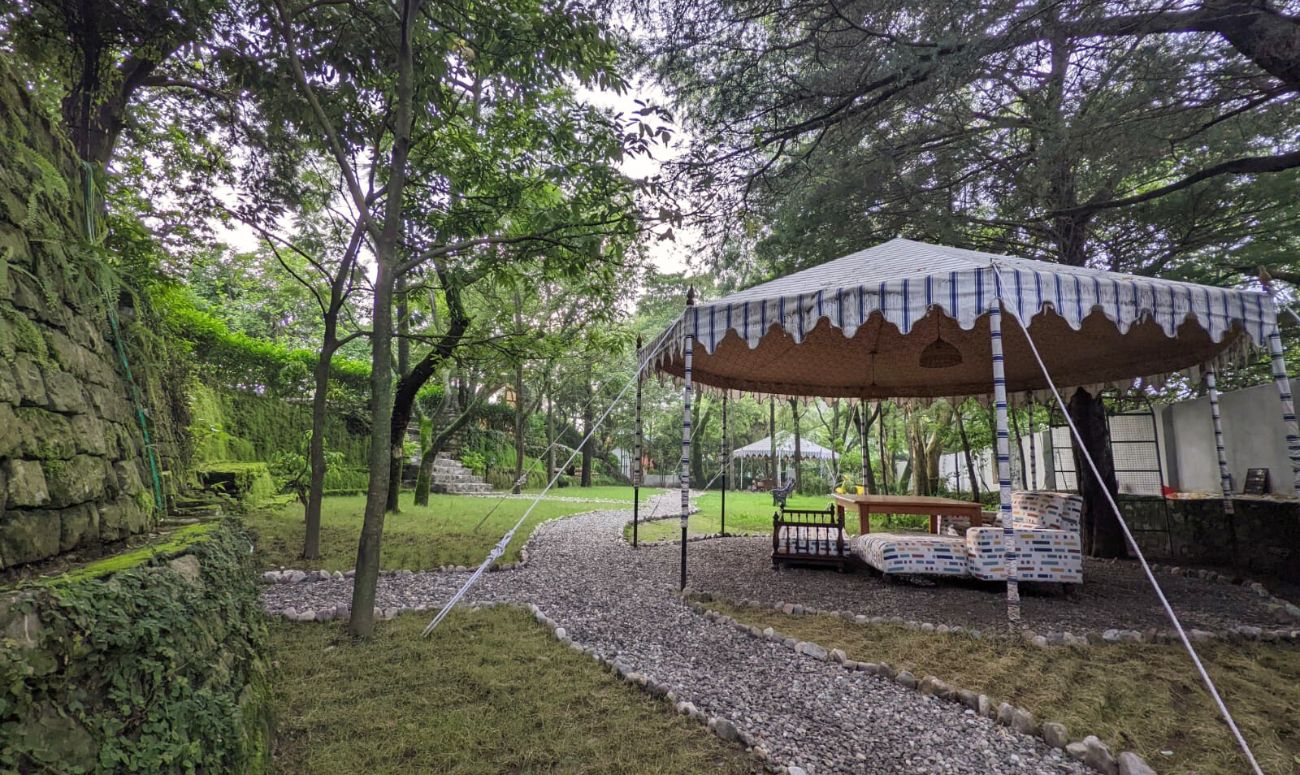
This property at Gethia is special in more than one way. Be it the perfect climate and environment to nourish the body and soul, the vast heritage that it boasts of with visitors like Mahatma Gandhi and Jim Corbett, or the location of the property on a crystal hill that fills it with positive energy, or the story of Madame Durell – something that you need to visit to find out, it was just ideal to have this place as Blue Book Hotels’ first and flagship property.
TRM: Why did you choose to get into the hospitality industry, and what excites you about hospitality and taking care of other people?
SG: After watching Akshay Kumar’s Chandani Chown to China, I always wondered, what is that one skill, that one move, that I have which I do better than anyone else I know. After graduating from Ashoka University, I tried dabbling; from working with my family’s educational institutions to starting my own Health Tech company during COVID, but I never felt that I’m doing something that I am good at or can be the best at. There was one thing that everyone I knew praised about me, and pointed out time and again – I was a great host. Once I had this realisation, I didn’t waste any time turning my best trait into my profession.
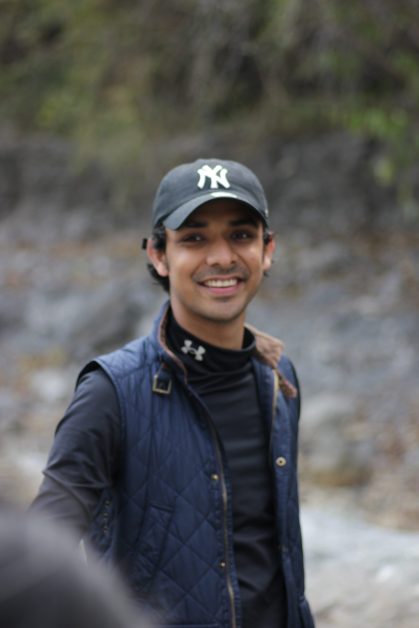
TRM: Let’s talk about the team that you have built, which is successfully helping you steer the ship. How did you come across this group of people and what drove them to take on this project?
SG: I knew Sinchan since a while. He had been working as our Chief Marketing Officer for other businesses. When I decided to take a leap of faith and jump into hospitality, he was equally excited for this new challenge. Coming up with the name Blue Book on our very first night of discussions about a hotel chain brand, this journey has been as personal for Sinchan as it has been for me.
Coincidentally, his best friends’ parents were just starting out as independent hospitality consultants after being at the helm of Cox and Kings for years.
Meet Punita Raju and Natraju – the power couple who was behind the success of the Maharajas Express and The Ultimate Travelling Camps. Meeting Punita Aunty and Natraju Uncle, I got so much insight into the industry as a layman and all of it just made me more and more excited about the field of work I was entering.
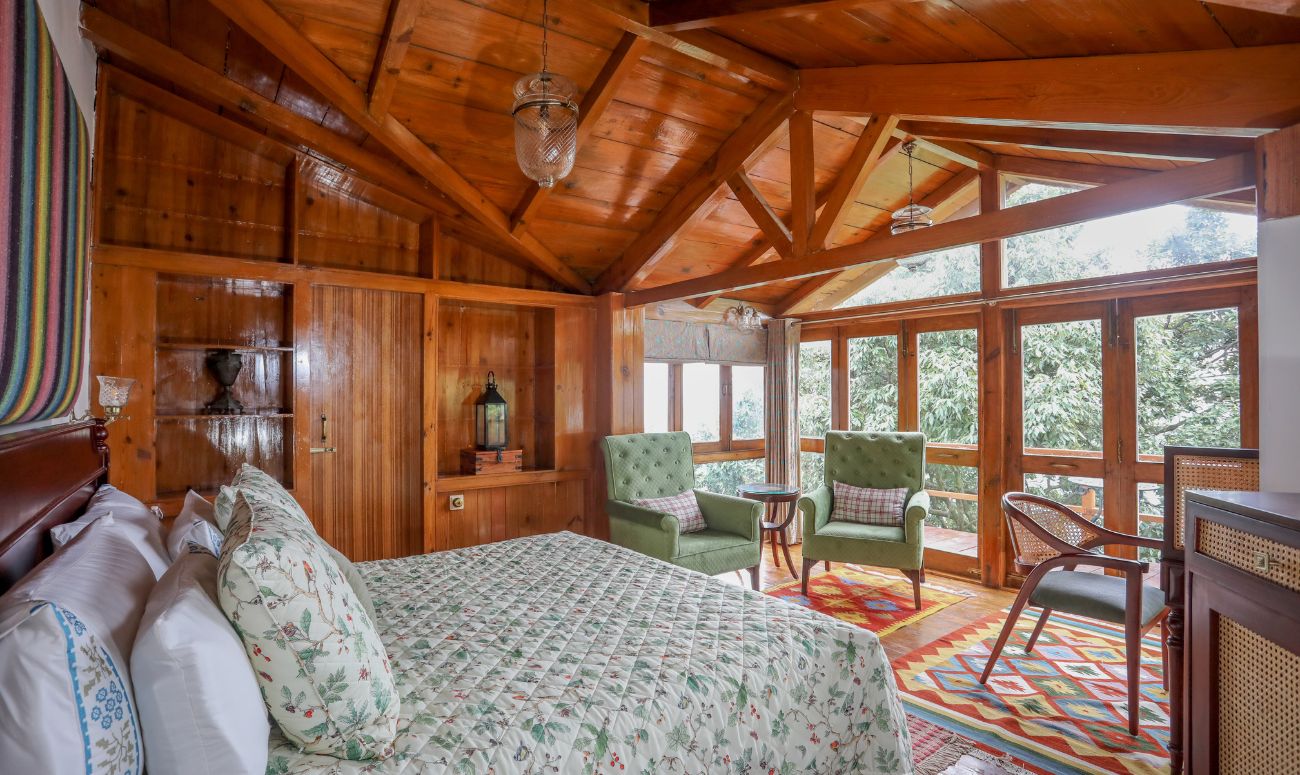
From the interiors to the decor to the staff training, all were under their scope of work. We still needed a great chef, an architect, someone to market us, and a designer for the brand. Simarpal Singh Virdhi, chef par excellence, came to join us through Uncle Aunty’s reference and did a superb job designing the kitchen, curating the menus, and getting the best chefs for us. Architect Raghvendra Jha was also commissioned by them to take care of the property’s MEP and other structural change needs. While this team of designer, architect, and chef were hard at work on-site, I needed someone to give me a perfect logo for Blue Book. I had a very clear idea of what I wanted but at the same time absolutely no idea at all of what it should look like. Through a friend’s reference, I was introduced to Shruti Narayanswami, who gave us Blue Book’s KEY which is one of the cornerstones of our brand – be it our main door or our stamp on the guest information letter, Blue Book’s key is one element you will find everywhere. After the much-awaited product was ready, and with spot-on branding, we needed someone to get the word out. Me being absolutely new in the industry, I needed a lot of handholding to be able to tell people about my product in a way that they would listen. Enter Shoba Rudra – founder of RARE India, a conglomeration of luxury boutique hotels with a strong commitment to sustainability. Be it the pricing of rooms, introduction to agents, features in the best of publications, and diligent sales, Shoba and her team left no stone unturned to market us in the best possible way.
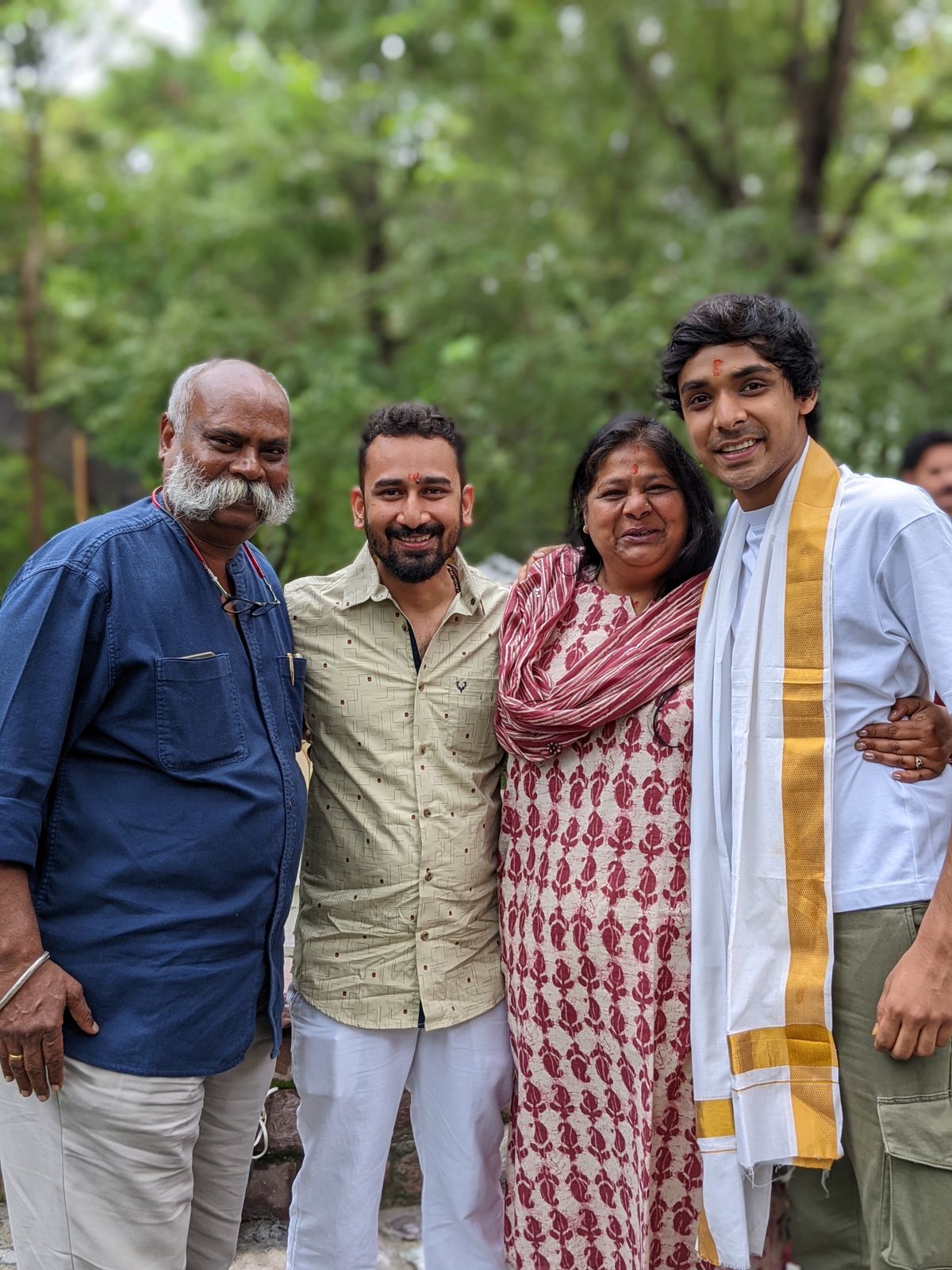
Interestingly, during one conversation with my designer Shruti, she mentioned that her mom is also into hospitality and runs a travel company, on enquiring what her mother’s company was called (hint : RARE India), I realised I had been working with mother and daughter for months simultaneously without knowing. (Laughs)
TRM: You are quite young and bringing a fresh perspective to a heritage property! In your restoration, how have you, architect Raghavendra Jha, and design executives Punita Raju & Natraju managed to keep the property’s heritage feel alive while also juxtaposing modern elements?
SG: The idea behind the restoration of this 130-year-old property at Gethia was simple, a life of the 1900s with the comforts of today. We were basically building a time machine, a property that transports you back to the 1890s without compromising on the luxuries of the 2020s.
Since 1891, this place has undergone 3-4 renovations, some of the underground water pipelines are still 100 years old. So, the most challenging part for the team was to figure out the MEP – mechanical, electrical, and plumbing aspects of the property.
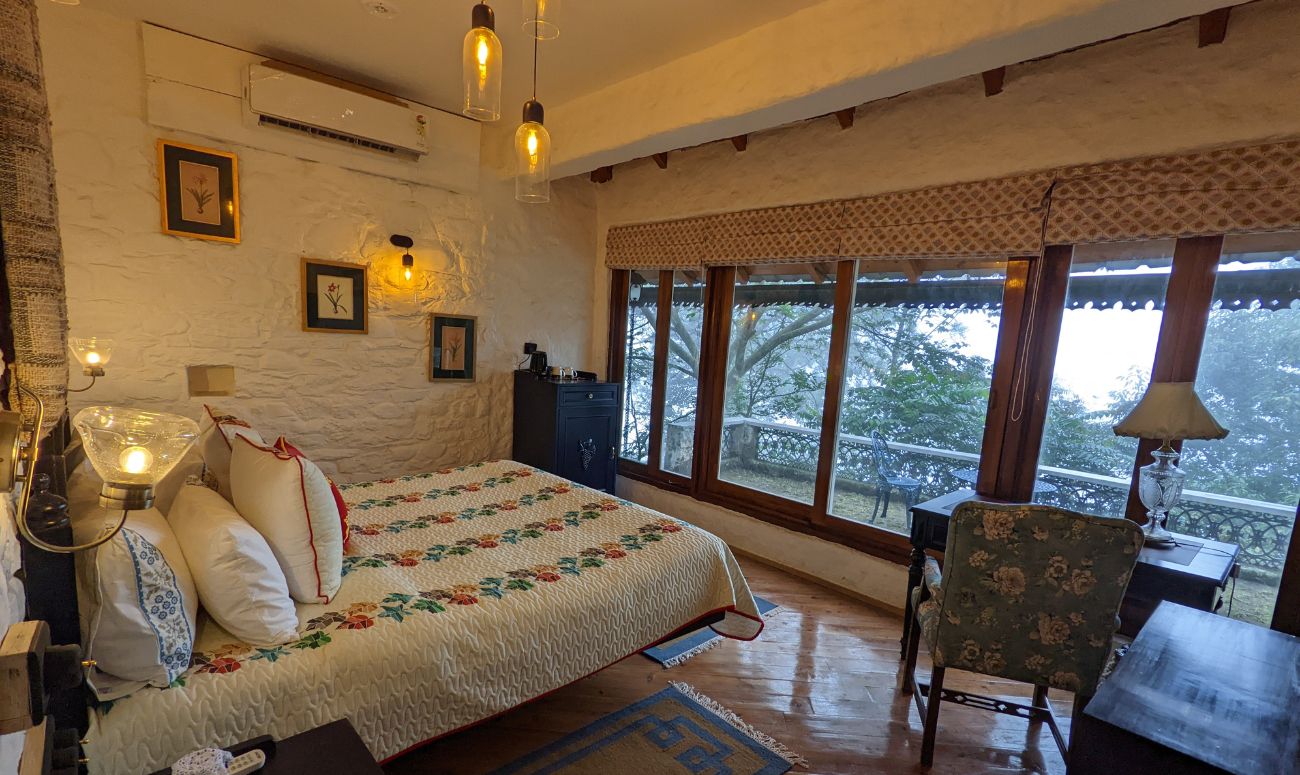
That being done, the focus was to keep the Old-World Charm intact. With Punita Raju’s expertise in interior and procurement, we were able to source from the best across the country – linen from Panipat, cutlery from Moradabad, crockery from Gujarat, antique pieces and paintings from various dealers, and the list goes on. We made sure to not compromise on the aesthetics at all, regardless of how much we had to struggle to find them – even the light switches and the in-room intercoms have an antique look. However, we also did not compromise on the comfort of guests – be it temperature-controlled rooms or water heating systems, the guests are assured all modern-day comforts in their heritage rooms.
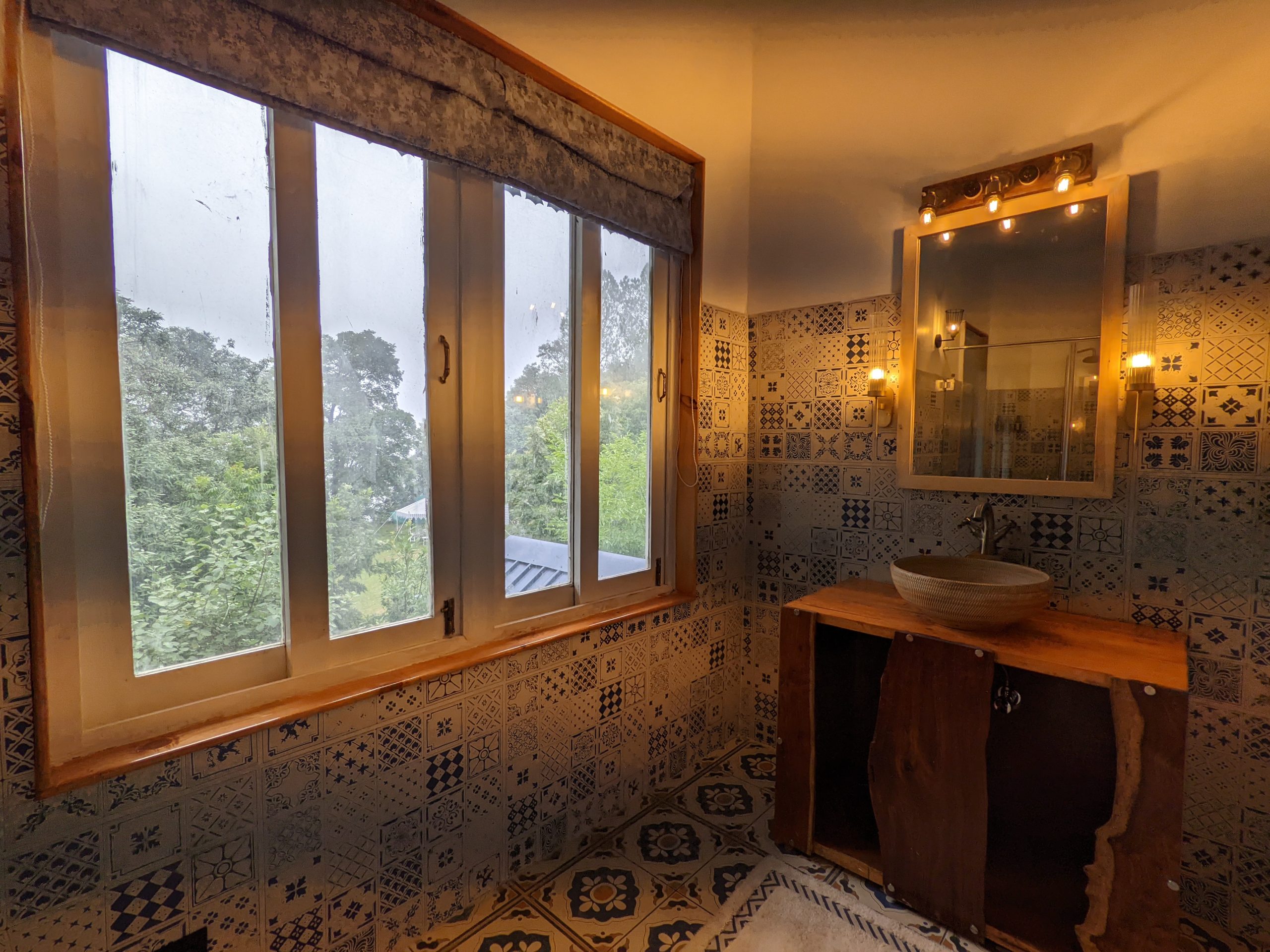
TRM: How has the property’s history influenced the service and guest experience at Blue Book at Gethia? How are you, Sinchan, and Shoba weaving a unique brand story to stand out from the crowd?
SG: The property’s history is something that has influenced everything about how we have done the place up. We tried to make sure that Madame Durell’s estate looked like it would’ve in its heydays and therefore did our best to restore it to its past glory. After all, the visitor list of Blue Book at Gethia includes Jim Corbett and Mahatma Gandhi himself.
Our unique brand story that makes us stand out of the crowd and enhance the guest experience is one of Cashless Vacation. A concept that ensures an ultra-luxury and experiential vacation for every traveller. From taking our guests for hikes followed by high tea and doing a riverside barbecue to serving every meal at different locations and taking the guests birding or golfing; everything is inclusive in the room cost. This way, the guests can enjoy a hassle-free vacation wherein they just have to book a room with us and arrive, all their other headaches about making their vacation memorable, enjoyable, and unique are done by us at Blue Book.
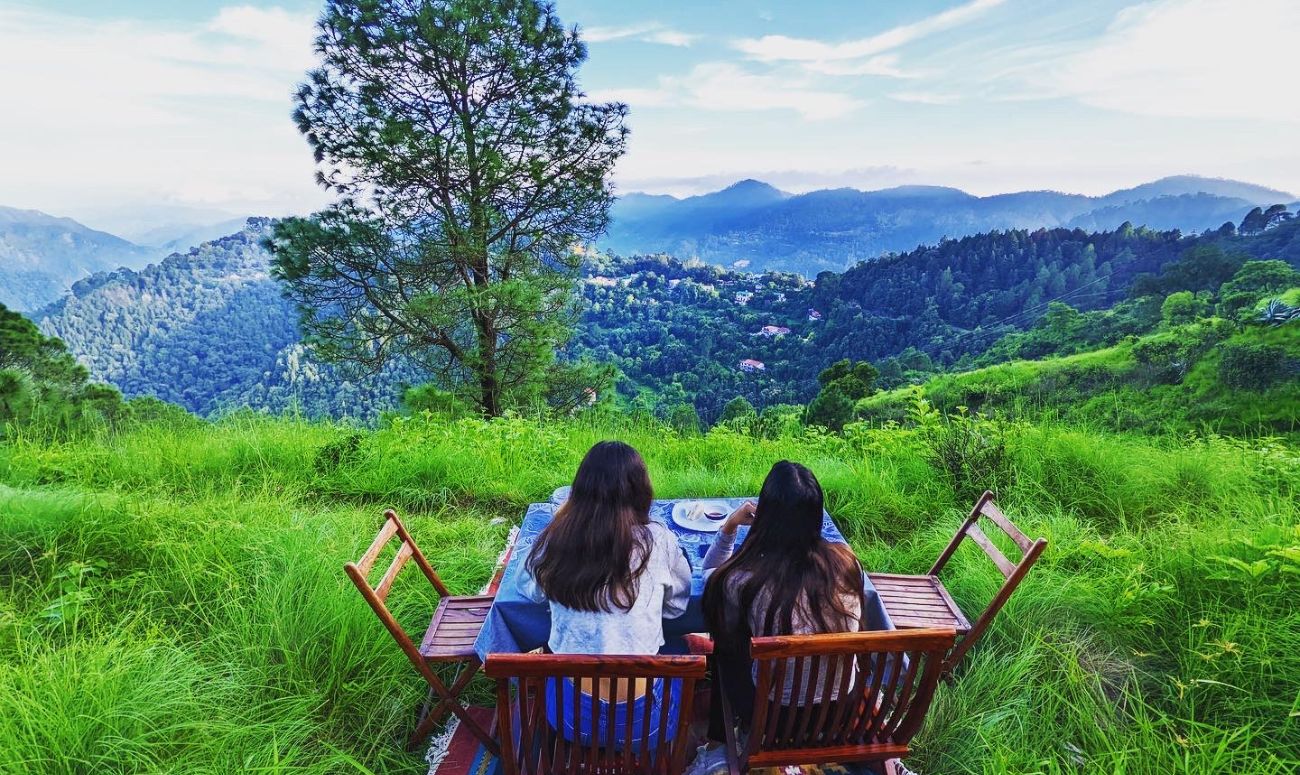
The second pillar of the brand is the inclusive growth of the community we are surrounded by. Sharing our water with the village of Gethia, safe garbage disposal, and local employment are just some of the first steps I have taken in a long journey of making the brand’s growth all-encompassing of the people around it.
TRM: What are some of the challenges you wish you foresaw when taking the leap of faith and becoming a full-time hotelier?
SG: (Laughs) This could be a list that can keep going on. Taking a leap of faith with hospitality, I didn’t have any education or experience in this industry. Looking back now, 1 year into renovating and running this place, I feel like I can write a book on things that I wish I foresaw or did differently. Being my first project, this was a mammoth of a property to take over and renovate. Secondly, since it’s a heavy lease I am paying for this property, my monthly operating expenses are through the roof. In hindsight, and this advice I would give to anyone starting out in this industry, I think it would have been best to buy a smaller place with lesser capital investment and start small. The numbers you project before starting all go out of the window when it comes down to getting business. Even selling 1 room a night is a big achievement, and I underestimated the effort and time it would take for me to get this place going even at a breakeven. That being said, I have undergone a huge learning curve this last 1 year and don’t have any regrets. You must jump into the deep end of the pool someday to be a swimmer. The only difference is, I didn’t spend enough time taking lessons, so it’s definitely harder but a lot more thrilling.
TRM: Post-pandemic, people are leaning more toward mindful tourism and spiritual travel. How are you keeping in line with these concepts and what are some of the services you’re providing at Blue Book to cater to these needs?
SG: One of the top attractions to date for every guest at Blue Book has been the nearby Kainchi Dham where Baba Neeb Karori’s ashram is located. The sage who was believed to be a reincarnation of Lord Hanuman has devotees from all across the globe with the likes of Steve Jobs, Mark Zuckerberg, Julia Roberts, and Virat Kohli. The peace and tranquillity at the Kainchi Dham Ashram, which is by the river, is awe-inspiring. We are blessed to be located in such close proximity to this world-renowned spiritual destination.
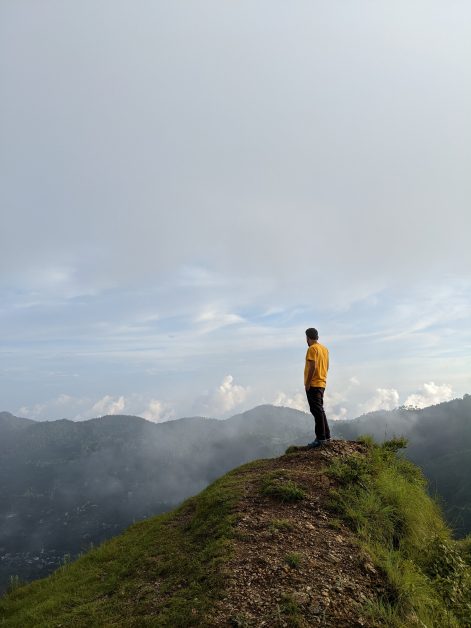
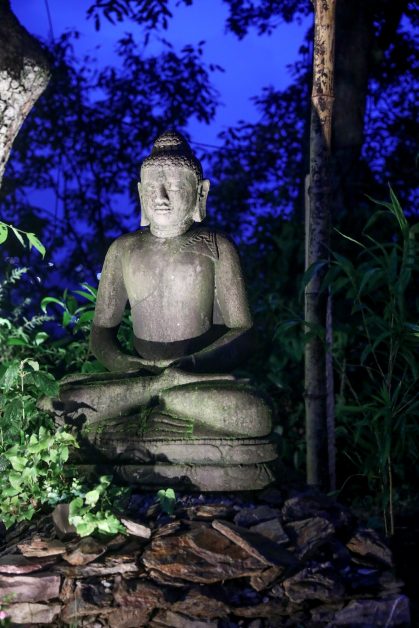
I also want to make this a destination for yoga, wellness, and meditation. Gethia, since the British time, has been a spot for sanatoriums where people came to recover from illnesses. The area was specifically chosen for its nourishing environment and ideal weather. Moreover, Blue Book at Gethia is said to be located on a crystal hill which is believed to have a lot of positive energies. All these factors make this place an ideal destination for wellness and mindfulness. We have a Buddha Garden on the property with a huge Buddha statue, which the guests can use for practicing yoga and meditation.
TRM: What can guests expect on their visit? What are some of the hotel’s unique experiences? Does Chef Simarpal recommend a few Gethia- inspired dishes that guests must try?
SG: Blue Book – A Rare Story has inculcated Ibn Batuta’s philosophy – “travelling leaves you speechless and turns you into a storyteller”. Our concept of a cashless, hassle-free vacation promises that every guest’s experience will be unique and spectacular. Travellers book hotel rooms expecting good food and a comfortable stay – at Blue Book they get so much more than that. We serve all meals at different locations across the property – 8 curated dining havens at this 4-acre estate ensures that every dining experience is memorable. Also, we serve a different cuisine for every meal – Asian, Continental, Indian, Kumaoni or Global, almost anything the guests can think of, our kitchen can make. The cherry on this cake is that our cakes are also baked in-house. Blue Book has a state-of-the-art in-house bakery, everything from croissants, donuts, crullers, and breads is baked fresh and in-house.
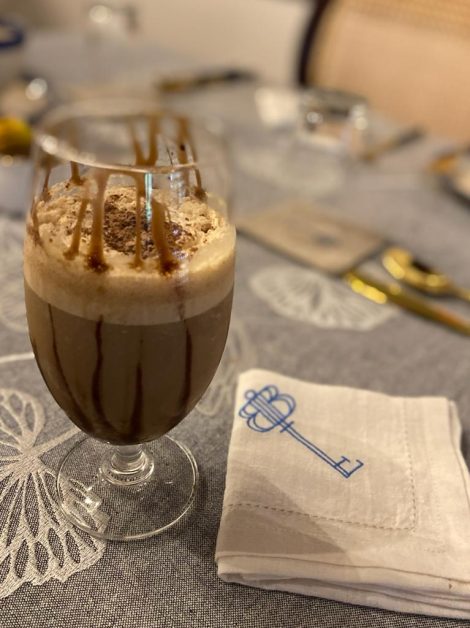
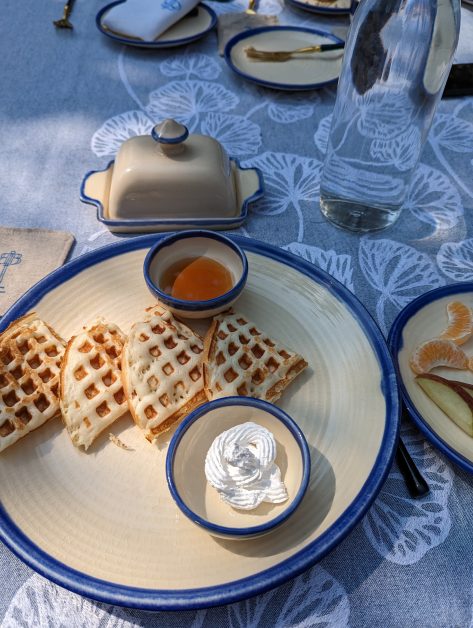
The most liked cuisine by the guests is indeed our Gethia-inspired Kumaoni meal. Pahadi paneer, bhatt ki churkani daal, laai palak ki sabji, bhang ki chutney, mandue ki roti, all this and more prepared by Girish ji – Blue Book’s guard bhaiya and Gethia’s favourite former Halwai.
TRM: Lastly, being a young hotelier can be a stressful and tiring profession. Could you share with our readers a few mindfulness tips that you follow in your life?
SG: I think the best way to deal with work-related stress is to look at it as something you have to go through in your journey of achieving something meaningful in life. I mean, if it is an easy journey, then the destination wouldn’t be as remarkable. That being said, I feel it’s extremely important to have a healthy lifestyle that greatly impacts your mental health and enables you to successfully deal with and mitigate work-related stress. For me, living at the property all by myself, it was extremely important to include physical activity, mindfulness, and healthy eating habits to make my lifestyle sustainable. I try going for a run every day in the morning after waking up, post that I work out for about an hour. I am also trying to be regular with a short 15-30-minute meditation in the evening as a mental aid station, just to be present in the moment and not think about the 10 things happening with the business. Also, staying at a resort where the kitchen can make anything and everything that I can think of, I have had to make a lot of effort to follow a healthy and sustainable diet. A few more things that I want to do for my physical and mental health are to quit my occasional smoking and limit alcohol consumption.
Read More: 12 Platforms That Offer Affordable Therapy Online In India
Like & Follow ThinkRight.me on Facebook, Instagram, Twitter, Pinterest and Telegram to stay connected.
